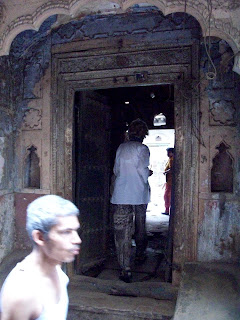On the 16th of April, we arrived in Delhi after a long car journey from Dehradun in the sweltering heat ready to fly back to London that evening. We’d heard some rumours about a volcano that had erupted in Europe, but typically presumed that it wouldn’t affect us. We were lucky enough to know Surekha Narain, a great friend who we know through our work with the Purkal Youth Development Society and who has always gone out of her way to look after us in Delhi.
We soon realised that this volcanic ash cloud was going to make our stay a little longer than originally planned. It was Surekha’s pro-active attitude and motivational skills which made our prolonged stay of one week an absolute pleasure and left us wanting to return to this beautiful, green, historic city as soon as possible. Surekha is famed for her fabulous Heritage Metro Walks throughout Delhi and despite several visits to the city, my mother and I were still novices when it came to Delhi’s amazing history.
Every morning we would get up at 5am to avoid the heat of Delhi’s hottest April for years and we’d venture out into the city. We spent the first unexpected morning exploring the narrow alleyways, hidden havelis and Jain temples around Old Delhi. Armed with a map which highlighted the interesting spots we really felt like intrepid explorers uncovering lost secrets that are rarely explored. Another day we explored the beautiful archeological park around Qutb Minar, the sufi shrine in Mehrauli village and the bustling flower market, and another day we strolled through Lodi Gardens and soaked up the serene atmosphere, spotting birds and enjoying the ambience of people doing yoga and taking their morning walks. One of the most wonderful things about Delhi is it’s rich religious and cultural heritage, and Surekha’s knowledge of this took us to Sikh Gurdwaras where we listened to sublime Kirtan, the Qawali performance at Nizammudin, and some beautiful Hindu temples.
On our last day we took another fascinating walk around the civil lines area, taking in the splendour of the former seat of the British Raj and learning about their first settlements in Delhi, whilst whizzing along the wide roads in a fleet of cycle-rickshaws.
When news finally came that we were leaving, we couldn’t help but feel a little sad that our Delhi adventure had come to an end. Our understanding and appreciation of the history and diversity of India has developed so much.
Please note that Surekha Narain will be in London in June/July and will be giving some presentations on the 7 Cities of Delhi. If you would like to have a private presentation on Delhi in your office, school, university or community centre please contact Surekha by email at surekhan@hotmail.com.




